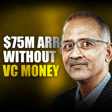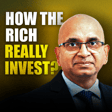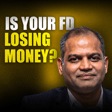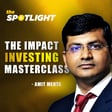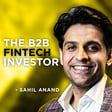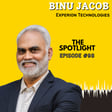
A Japanese VC’s take on Funding, IPO Pathways and Exits in India (Nao Murakami)
How did a Japanese investment banker turn into one of India’s most influential seed stage venture capitalists? In this episode of the Founder Thesis Podcast, Nao Murakami, Founder and General Partner of Incubate Fund Asia, shares his journey from Nomura to building one of the most active seed VC funds in India and Southeast Asia.
Nao recounts his move from Tokyo and New York to Delhi, the failure of his first startup, and the serendipitous meeting that led to launching Incubate Fund Asia. From backing early bets like ShopKirana, Captain Fresh, and Yulu to now co-running a 200 million dollar fintech growth fund with SMBC, Nao brings unique insights from Japan’s profitability-first culture to India’s dream-big ecosystem. In this candid conversation with Akshay Datt, he unpacks founder quality as the ultimate success factor, Japan-India cross border synergies, and the evolving exit landscape in Indian startups. This episode is a must-listen for founders, investors, and operators curious about the future of early stage venture capital in India.
Key highlights:
- How Nao Murakami transitioned from Nomura to founding Incubate Fund Asia
- Lessons from investing in ShopKirana, Captain Fresh, Yulu and Plum
- Insights on founder quality as the biggest driver of success in India
- How Japanese LPs and corporates are entering India through venture funds
- The changing Indian startup exit story from 2016 to today
- Sectors where Incubate Fund Asia is placing bold bets in 2025
Subscribe to the Founder Thesis Podcast
Follow us on LinkedIn (podm.in/ad) for exclusive content
Visit founderthesis.com for more founder stories
00:00 - Nao Murakami’s journey from Nomura to VC
02:20 - Launching Incubate Fund Asia in India
06:10 - Seed fund strategy and portfolio highlights
12:00 - Japanese vs Indian startup mindset
18:15 - Betting early on ShopKirana, Yulu and Captain Fresh
25:00 - Why founder quality drives success in India
31:20 - LPs from Japan entering Indian startup ecosystem
37:50 - The evolving exit landscape for Indian startups
44:40 - New bets in fintech, D2C, deeptech and greentech
51:10 - Nao’s advice for Indian founders looking at Japan
#NaoMurakami #IncubateFundAsia #FounderThesisPodcast #IndiaStartupEcosystem #SeedStageVC #VentureCapitalIndia #CaptainFresh #Yulu #ShopKirana #PlumInsurance #JapaneseVC #FintechIndia #FundingWinter #StartupExitsIndia #B2BCommerceIndia #EarlyStageInvesting #SMBCAsiaRisingFund #DeeptechIndia #EVStartupsIndia #D2CIndia





